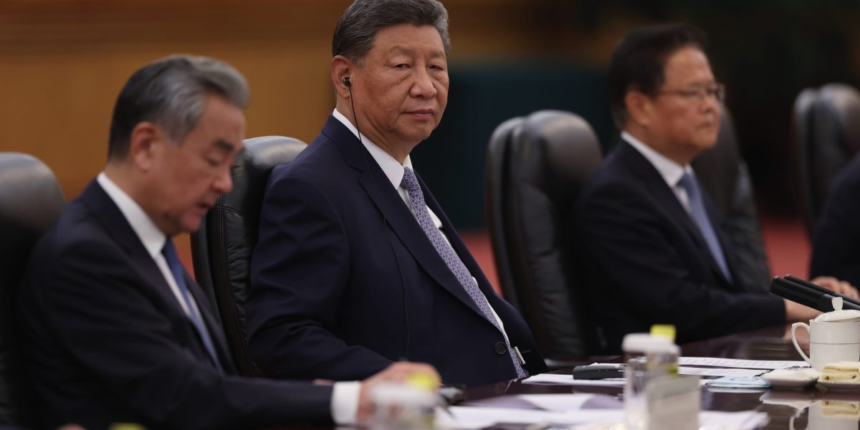Presidents Donald Trump and Xi Jinping are maneuvering for leverage ahead of their upcoming meeting and the expiration of a U.S.-China trade truce, even at the risk of escalating tensions between the world’s two biggest economies.
Taken together, the latest moves suggest both sides are lining up bargaining chips ahead of a leaders’ meeting this month on the sidelines of the Asia-Pacific Economic Cooperation summit in South Korea. Meanwhile, a truce in a tariff fight that at one point saw U.S. levies surge to as high as 145% is set to expire Nov. 10, unless extended.
While the timing of the curbs “may be opportunistic, we suspect the new controls are mostly motivated by medium-term geo-strategic goals,” he added, characterizing the move as an attempt by Beijing to hold back foreign competitors in areas where the Asian giant wants to retain a leading role.
The danger for Trump and Xi is the path to finding an off-ramp becomes even more precarious if the U.S. responds in kind. The Republican president already threatened to bring some of his own leverage to bear when he meets Xi, suggesting he might restrict the sale of certain products to China, without offering specifics.
“We import from China massive amounts,” Trump told reporters. “You know, maybe we’ll have to stop doing that, but I don’t know exactly what it is. Neither do you. Neither does anybody.”
Treasury Secretary Scott Bessent and Commerce Secretary Howard Lutnick would work on the issue, he added, without elaborating.
China’s control of the rare earth sector gives it key leverage in negotiations, with curbs now announced on all but five of the 17 metallic elements.
Beijing’s addition of five mid- and heavy rare earths to its export controls, on top of the seven already restricted, underscores how these materials have become a flashpoint with trade partners beyond Washington. South Korea, Japan, the U.S., Germany and Canada are the top five buyers of the five newly added minerals, according to China’s customs data compiled by Bloomberg.
Heavy rare earths are almost exclusively produced by China and essential for advanced technologies, powering high-performance magnets, semiconductors, and precision military systems. China wields disproportionate influence over downstream industries with its dominance of the complex separation and refining capacity.
Xi’s ability to inflict further pain, however, might be limited. The five elements still exempt from China’s controls are largely light rare earths, which are more abundant, easier to mine and refine, and less strategically constrained than their heavier counterparts.
From the U.S. side, lowering the 20% tariff on Chinese goods related to the opioid crisis could be a low-cost card for Trump to play.
“Both U.S. and China could be strengthening their leverage in trade talks,” they said. “The tariff truce between the two countries, though fragile, could continue, as a hard trade decoupling was shown to be undesirable for both sides earlier this year.”









